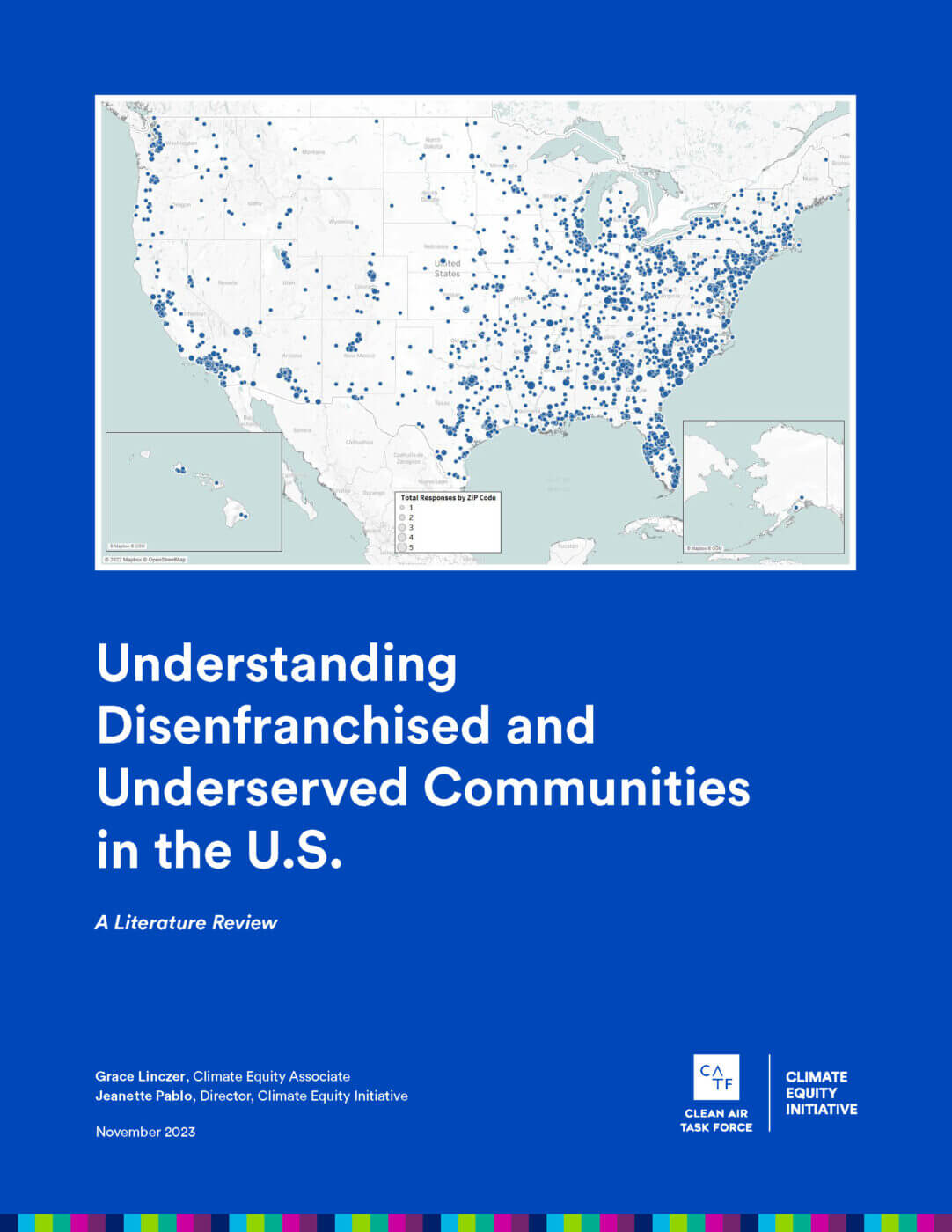Understanding Disenfranchised and Underserved Communities in the U.S.

To build a truly modern, just, and decarbonized economy, it is important to adopt a cooperative cross-sectorial approach to climate action dialogue that recognizes and engages with the crucial role and interests of disenfranchised communities. It is essential to note that the following insights provide an overview, offering a glimpse into the multidimensional challenges faced by these communities and the social, economic, and cultural perspectives that shape their involvement. This understanding, while valuable, is not exhaustive and does not represent the entirety of their experiences. Rather, it serves as a foundational framework that informs future efforts, highlighting the complexity of the issue at hand and emphasizing the need for continuous exploration and engagement with these communities.
This paper provides a broad overview of the challenges facing disenfranchised and underserved communities today, reflecting upon the compounding effects of inequity and the multifaceted nature of environmental risk. While it is important to engage each community with regard to their unique challenges and history, this analysis demonstrates that the most salient issues facing disenfranchised and underserved populations today are those which threaten health, economic wellbeing, and overall prosperity. Any efforts to move towards a just, decarbonized economy must account for the real concerns of disenfranchised and underserved communities.
Watch: Webinar launch of this report with Desmond Johnnie, Community Engagement Associate, Clean Air Task Force; Grace Linczer, report author and Climate Equity Associate, Clean Air Task Force; Rhianna Rogers, Director of the Center to Advance Racial Equity Policy and Senior Policy Researcher at the RAND Corporation; Kyle Jim, Executive Director, Dine Introspective; and Jasmine Simington, Research Fellow, Center for Racial Justice


